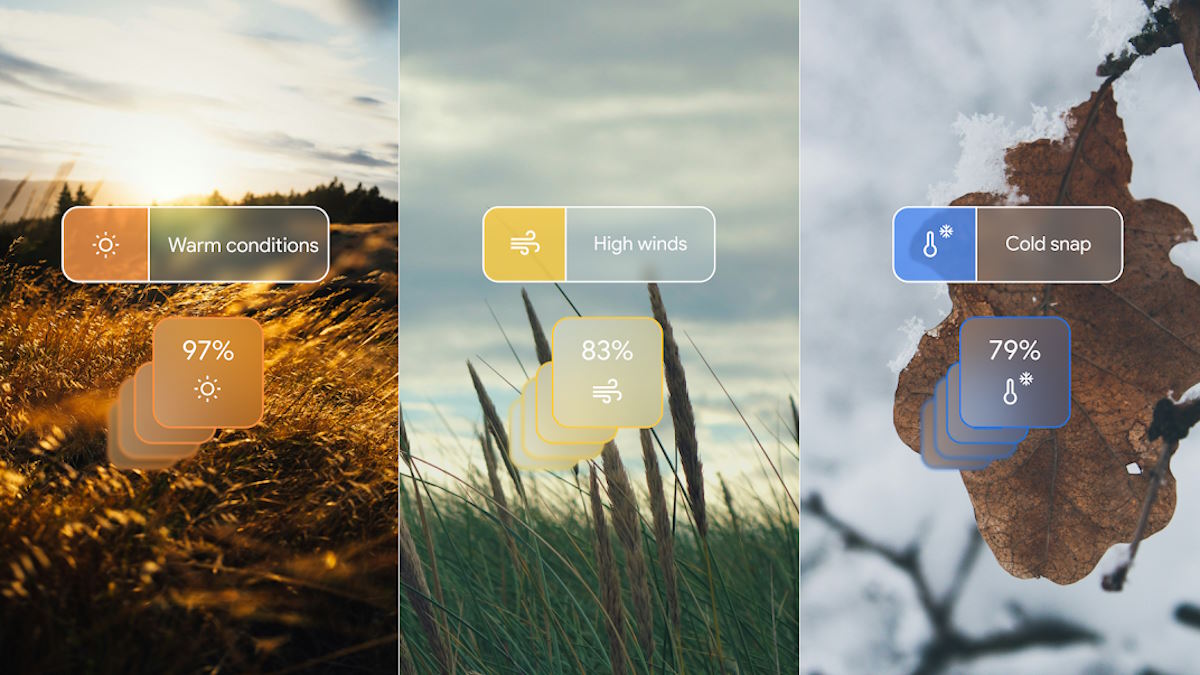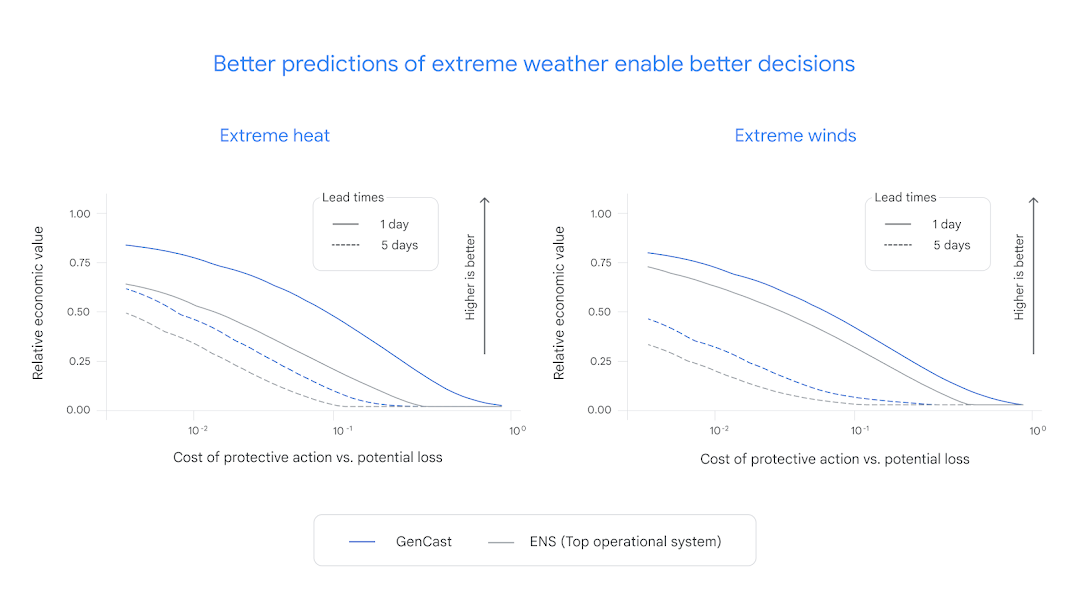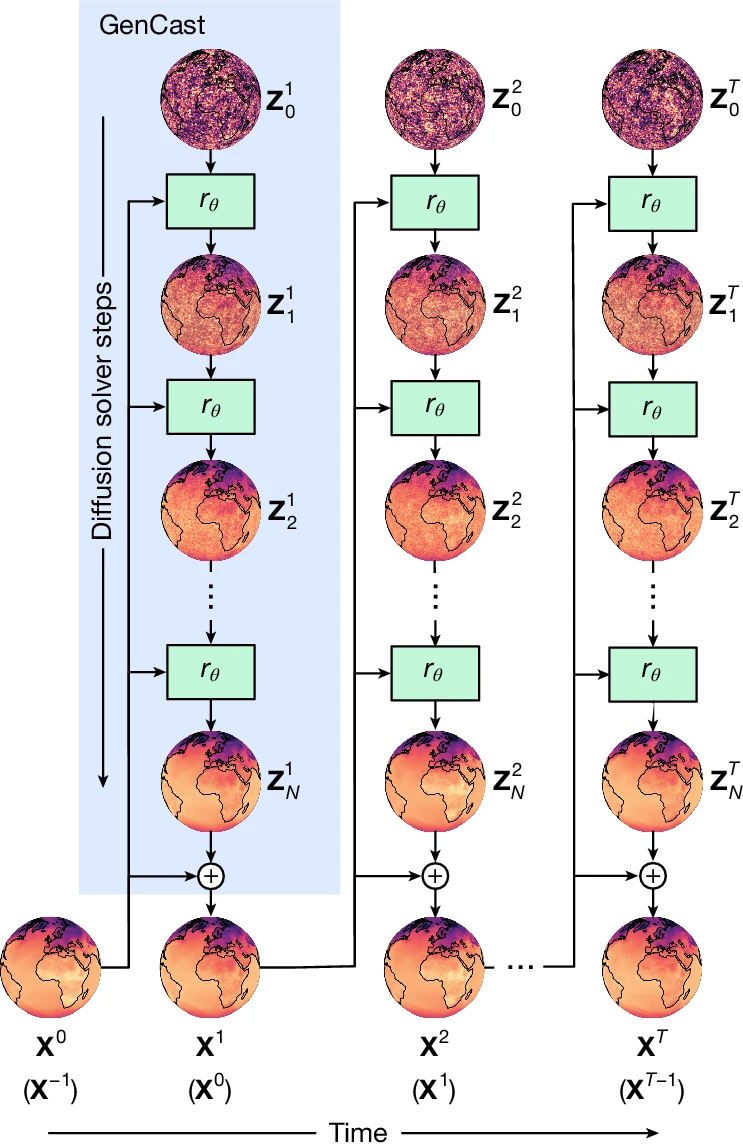DeepMind's GenCast AI beats traditional weather forecasting for the first time

Key Points
- Google DeepMind has developed GenCast, an AI model that outperforms the European Centre for Medium-Range Weather Forecasts (ECMWF) Ensemble Forecasting System (ENS) in 97.2 percent of cases tested.
- GenCast can generate a 15-day forecast in just eight minutes on a single Google Cloud TPU v5 chip, while the ECMWF system takes several hours on a supercomputer with tens of thousands of processors.
- The AI model is particularly strong in forecasting extreme weather events such as tropical cyclones, extreme temperatures, wind speeds, and air pressure, and could become important for planning renewable energy projects.
A new weather forecasting AI from Google DeepMind has proven more accurate than the world's top weather prediction system while performing its calculations much more quickly.
Research published in Nature shows that DeepMind's new model, GenCast, produces better results than the European Centre for Medium-Range Weather Forecasts (ECMWF) ensemble system in 97.2 percent of test cases. While the ECMWF system needs several hours on a supercomputer with tens of thousands of processors, GenCast creates a 15-day forecast in just eight minutes using a single Google Cloud TPU v5 chip.

Multiple scenarios for better predictions
Like ECMWF's ensemble system, GenCast creates more than 50 possible weather scenarios rather than a single prediction. The researchers note that since perfect weather forecasts aren't possible, mapping multiple probability scenarios is essential.

The system particularly excels at predicting severe weather. It delivers more accurate forecasts for tropical cyclones, extreme temperatures, wind speeds, and air pressure. For example, when tracking Typhoon Hagibis in October 2019, GenCast accurately mapped the storm's potential path seven days before it reached Japan, with increasing accuracy as the typhoon approached.
Built on decades of data
The AI trained on 40 years of historical weather data through 2018, using ECMWF's ERA5 archive. It uses diffusion technology—similar to AI image generation systems—but modified specifically for weather prediction.
GenCast works at 0.25-degree resolution and can predict over 80 different weather variables both at ground level and in the atmosphere. The researchers are making both the code and model details available to scientists.
Testing indicates GenCast predicts wind power generation more precisely than current systems, which could help power companies better integrate wind energy into electrical grids.
The system does have limitations: its resolution needs improvement to match ECMWF's recent upgrade to 0.1 degrees, and it requires more computing power than similar AI models.
Open-source release
Following their earlier GraphCast system, DeepMind has made GenCast's code and model details open source. The company wants to work with researchers, meteorologists, data scientists, renewable energy companies, and organizations focused on food security and disaster response to improve weather forecasting.
Last year, the European Weather Center rolled out its own AI system built with Huawei technology. While DeepMind continues its weather forecasting research, other tech companies are making progress too - Nvidia recently demonstrated its own weather prediction advances, and Google's teams are developing additional AI forecasting systems as well.
AI News Without the Hype – Curated by Humans
As a THE DECODER subscriber, you get ad-free reading, our weekly AI newsletter, the exclusive "AI Radar" Frontier Report 6× per year, access to comments, and our complete archive.
Subscribe now